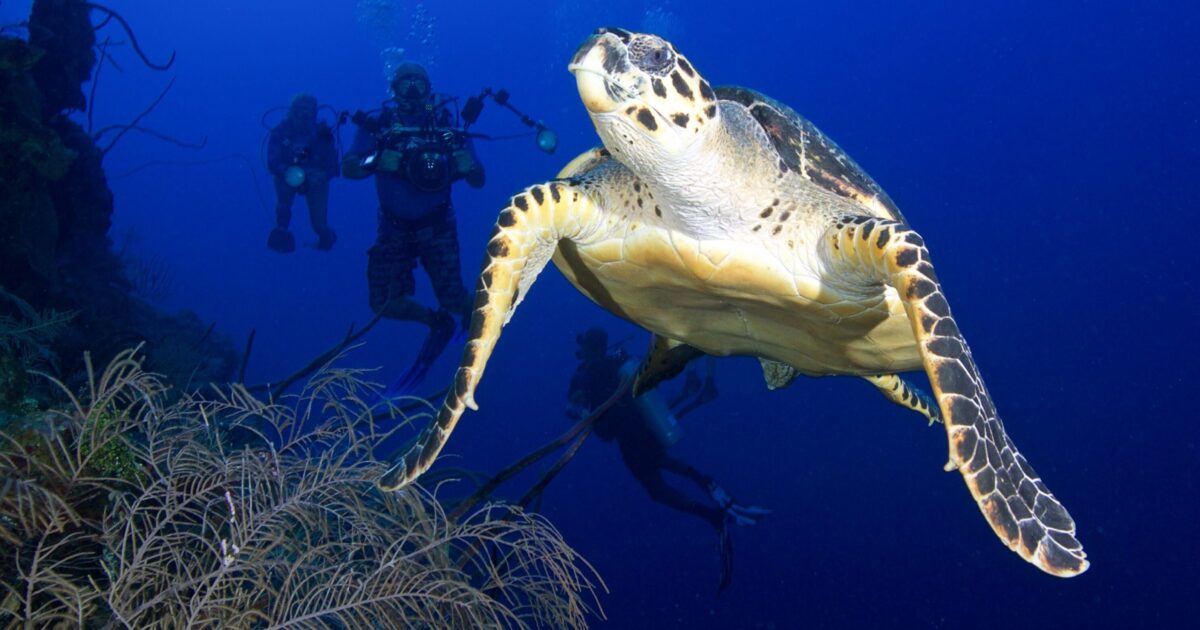Diving is one of those activities that inspires people to explore the natural world. Vast seascapes, plentiful marine life and unexplored realms that seem more alien than terran invite adventurous people around the world to take the plunge and explore our oceanic environments.
With a changing climate and more and more people visiting these aquatic realms, these marine environments are beginning to show their wear. As just one person, It can be hard to notice your own impact. However, with some of the most popular diving areas receiving thousands upon thousands of visits a year, a kicked rock, broken piece of coral or stolen shell can add up quickly and lessen the overall vitality of a dive site.
But how does one go about diving ethically? How can each diver build sustainability and a sense of stewardship into their practices? To find some answers, we sat down with diver, photographer and veteran Greg Piper, who’s been a leading voice in diving ethics over the last decade.
Why is it important to dive ethically?
Sure, let’s take somewhere like Grand Cayman: 5,000 divers a week dive in the west bay. Let’s imagine that each one of us lays on one piece of coral, breaks off one tube sponge, damages the reef—touches it with our bare fingers, grabs a turtle, any of these things. You have to multiply that—we’re not just one individual. Lembeh’s resorts are sold out a year in advance. A liveaboard in Raja Ampat: sold out a year in advance.
Raja Ampat is an incredible example of why when we don’t regulate places ethically and the number of people that can go there, how quickly those places can be destroyed. If you went to Raja Ampat 10 years ago, and you go again today—it’s an absolute tragedy. People will argue that and say, ‘I think Raja Ampat is beautiful.’ Of course you do. Because you’re only seeing it now for the first time. Is it still beautiful? Absolutely it’s still beautiful. Is it damaged severely from what it was like 10 years ago? Absolutely, you just don’t know that.
It’s no different than a diver who goes to Truk Lagoon today. People talk all the time about how great it used to be. It’s still great, but again, it’s all a matter of perspective. So if we go places and we’re not ethical in what we do, if we… disrupt seahorses, they go into shock and we end up killing that animal: there’s not an unlimited supply of these animals.
It’s gotten to the point where there’s places that I’ll go and dive, and I don’t even want to write about it. I won’t even talk about it because it’s so amazing that I don’t want to see what’s happened to Raja Ampat happen elsewhere. I don’t want to contribute to that.
What does that mean for divers?
Well, there are no more exotic places to go in the world. I don’t care if you want to go up to the Arctic, you want to go to Antarctica, we’re building cruise ships to take down 4,000 people at a time. People have disposable income and adventure travel is expanding, but there is no more adventure.
I went to Nepal, which has a 17.7 billion-dollar industry just in trekking. There were thousands of people between Lukla and Everest Basecamp. Things are so accessible today, so if we throw our plastic water bottle out, sure we’re just one person, but if there’s thousands of us?
It’s the same with diving. If we go and start destroying habitat, then we’re destroying that long term.
What are some of the problems?
Well, take for instance Tubbataha in the Philippines. It’s only open three months of the year, which is why it’s probably one of the most pristine places to dive. Fortunately for that area, weatherwise, you can only be out there for three months a year.
But any place else where the government doesn’t take strict care to limit the number of people who go is at risk. Raja Ampat is a perfect example: Raja Ampat went from a handful of liveaboards in 2000, to 285 operating there today.
The reef is just not sustainable. It can’t sustain these new emerging economies.
The same is true of new emerging economies today.
So if we don’t educate people, and we don’t tell them—especially in terms of social media—then we’re going to have destruction and it’s just not gonna be there for future generations.
What role does money play?
A central theme is the problem of profit over protection. That’s the problem at Truk Lagoon. Anytime you go to a place, if you want to not kill mantas—if you want sharks to be protected—you have to pay the people that are going to fish those animals more than you would pay them to go out and fish them.
If you’re a fisherman in Indonesia making $75/month feeding a family of six, but you can go out and kill a manta for $350, it just makes sense to do it. At that point, you’re not listening to the argument that there’s a whole other tourism industry because you’re not a dive master and you’re not able to make a living off the dive industry.
And to be fair, conservation is a luxury of wealth. You just can’t talk people into conservation when your problems include feeding your children.
Coming in part two of our ethics conversation with Greg Piper, we address the elephant in the room—social media—and discuss how macroeconomics helps and hinders oceanic health.











